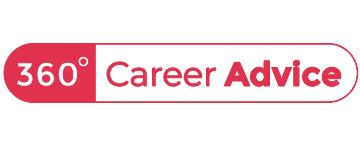Preparing for an SEO interview? You’ve come to the right place. This blog covers the essential SEO interview questions you must know.
In today’s tech-driven world, SEO is one of the most important aspects of digital marketing. It is pivotal in enhancing your visibility and building a strong online presence. Most companies dedicate a significant amount of time and money to SEO and making sure their website ranks for relevant keywords.
SEO is not just about being present on the internet; it’s about being easily discoverable amidst a vast number of competitors. Whether you’re a content creator or a business owner, SEO is the tool that ensures your message is effectively communicated.
However, discussions about SEO can be intimidating, especially during interview preparation. That’s where this blog comes in.
In this blog, I’ll be answering the most important SEO interview questions. This blog includes the most likely questions in any SEO interview. By the end of this blog, you’ll be prepared to answer any SEO-related questions that may arise in an interview.
Top SEO Interview Questions to be prepared for:
1. What is SEO, and Why is it Essential for Businesses?
SEO stands for Search Engine Optimization, which includes optimizing a website’s structure and content to improve its visibility on search engines like Google. By implementing SEO, your website will rank higher on Search Engine Results Pages (SERPs) for keywords relevant to your business. SEO is important because it drives organic traffic to your website, boosts brand credibility, and ultimately leads to higher conversions and revenue for businesses.
2. What is the Difference between On-page and Off-page SEO?
On-page SEO is the optimization of elements on the front end of your website, such as content, meta tags, and keywords. Off-page SEO, on the other hand, involves activities like link building and online reputation management that occur outside your website to increase the website’s credibility and improve its ranking on search engines.
3. What is the Significance of Keywords in SEO?
Keywords are the foundation of SEO and are essential for search engines to understand the content of a web page. An important task in SEO is identifying keywords that are relevant to your business, and implementing them in your website to rank higher in SERPs. This can be done with keyword research, where we use different tools to target relevant and high-converting keywords that align with the website’s goals.
4. How do you Conduct Keyword Research?
Keyword Research can be done using tools like Google Keyword Planner, SEMrush, or Ahrefs to identify relevant keywords. These tools can be used to analyze competitors, focus on long-tail keywords, and determine keyword difficulty to create an effective keyword strategy.
5. What is the Role of Content in SEO?
Content is a critical component of SEO because it not only attracts visitors but also provides value to them. Google measures your website based on the value you provide to your customers, so it’s very important to ensure your content is of the highest quality. It’s important to have high-quality, original, and user-friendly content, and optimize it by adding relevant keywords.
6. What are Backlinks, and Why are they Essential for SEO?
Backlinks are external links from other websites that point to your site. Stress their significance in building domain authority and trust with search engines, leading to higher search rankings. Mention white-hat link-building strategies such as guest posting, influencer outreach, and creating shareable content.
7. How Does Mobile Optimization Affect SEO?
Mobile optimization ensures a seamless user experience on smartphones and tablets, which is essential for ranking on search engines. Responsive design, fast loading times, and mobile-friendly content are very important from an SEO perspective.
8. How Do You Measure the Success of an SEO campaign?
Show your analytical skills by discussing key performance indicators (KPIs) like organic traffic, click-through rate (CTR), bounce rate, and conversion rate. Explain how tools like Google Analytics and Google Search Console are used to track SEO progress and make data-driven decisions.
9. How Do You Stay Updated with SEO trends and Algorithm Changes?
Emphasize your commitment to continuous learning by mentioning authoritative and trustworthy resources like Moz, Search Engine Journal, and Google’s Webmaster Central Blog. Discuss the importance of monitoring Google algorithm updates and adapting strategies to stay ahead in the field.
10. What Are Rich Snippets? How Do You Implement Them?

Source – Backlinko
Rich snippets, also known as rich results, are search results pulled from a code called schema markup. These are more visually pleasing search results that draw the audience’s attention, as opposed to the traditional “blue link.”
Rich Snippets appear as additional information which is displayed alongside the title, description, and URL. This could be in the form of FAQs, prices, ratings, or reviews.
To get rich snippets of your website displayed on SERPs, you need to implement structured data on your web pages. One tool that can be used to generate schemas is the Schema Markup Generator by Technical SEO.
11. What Are Meta Tags?
Meta tags are snippets of code that are placed in the <head> section of a webpage. They are HTML tags that provide search engines with additional information about your webpage.
Meta tags can influence how your webpage is viewed by Google and displayed in search results. Some examples of meta tags are the meta title and description.
12. Explain Canonical Tags.
A canonical tag is used when there are two identical pages on a website. It’s a code snippet that identifies the main (canonical) version of a page and differentiates it from any duplicates.
This is done so that duplicate content issues that arise when similar content is accessible under different URLs can be avoided.
13. What Is a URL Slug?
A URL slug is the last part of the URL that provides information about the content of the page.
For example, in this blog, the URL slug is seo-interview-questions.
The URL slug should ideally include the focus keyword of the particular page.
14. What Is Crawling?
The process used by search engines to find new pages on the internet is called crawling. On discovering a webpage, Google bots or spiders, follow all the links on that page to discover new pages. It then stores all this information in the form of an Index.
15. How Do You Check If a Website Is Indexed by Google?
There are two ways of checking if your site has been indexed:
- You can use the “site:” search operator to check whether a website is indexed by Google. By looking at the number of search results, you can get an approximate idea of how many pages have been indexed.
- Another method of doing this is using Google Search Console. The ‘Page Indexing’ report tells you all the pages on your website that have been indexed. It also shows you pages that have not been indexed, along with reasons why they haven’t been indexed.

Source – Google Help
16. What Is Anchor Text?
Anchor text is the visible, clickable text that links one webpage to another. This text often appears in blue, so that users understand that it is a link. It’s more appealing to viewers as opposed to a long, hard-to-read link.
For example, Important Subjects In Digital Marketing Syllabus is much easier to read than http://360careeradvice.com/blog/digital-marketing-syllabus
It also helps Google better understand the content of the linked page. Anchor Text is a great way of interlinking pages on your website and making it more SEO-friendly.
17. What Is a Robots.txt File?
A Robots.txt file is used to instruct search engine bots about which pages and sections of the website they’re allowed or not allowed to crawl.
“User-agent,” “Allow,” and “Disallow” are some of the directives that can be given to the bots, which specify the bots, and the paths of the pages to be indexed and pages to be blocked respectively.
If there is no robots.txt file on your site, Google bots will try to index all pages on your website. There’s a good chance it may not index the important pages and end up landing on pages you don’t want to be indexed.
18. What Is a Sitemap?
A sitemap is a file with links to the pages on your website that you want search engines to crawl, index, and rank in search results.
A sitemap helps Google find pages faster and more efficiently, making it very important from an SEO perspective. A sitemap can be submitted to Google on Google Search Console,
19. What Are Long-Tail Keywords?
Long-tail keywords are search queries that tend to be longer and more specific. These are queries with particular intent and tend to have lower search volumes.
For example, keywords like “chinese restaurants in south mumbai” and “best chinese takeaway near me” are highly specific with clear intent, making them great long-tail keywords.
Long-tail keywords are preferred as they are less competitive and easier to rank for.
20. What Is a 404 Error?

Source – PNGTree
Answer: A 404 error code is an HTTP status code that is displayed in two situations:
- The requested resource or webpage can’t be found on the server.
- When a URL does not exist or has been deleted, the server displays a 404 code to indicate that the requested page is unavailable.
21. Define Page Speed and It’s SEO Relevance.
Answer: The total amount of time it takes for a webpage to load is called page speed. This depends on the number of images and CSS and JavaScript elements used on the page.
Page Speed affects the user experience, which is a ranking factor for Google, making it very important for SEO.
Fast-loading websites lead to a positive user experience whereas slow-loading websites create a poor user experience, which is bad for SEO.
22. Can you Provide an Example of a Successful SEO campaign you’ve Managed?
Share a real-life success story from your experience, highlighting specific challenges, strategies employed, and measurable outcomes. Illustrate how your efforts led to improved rankings, increased organic traffic, or higher conversions for a client or employer.
Conclusion
While cracking an SEO interview may appear challenging, mastering these SEO interview questions will help you stand out from competitors.
With a good knowledge of SEO principles, practical experience, and effective communication skills, you’re destined for a prosperous SEO career.
Besides your knowledge, your confidence is your greatest ally while giving any interview. Best of luck in your upcoming interview – may it be the first step toward a fulfilling career in the world of SEO.
That’s it for this blog. I hope you found this information useful. Let me know in the comments if you have any questions.
FAQs – Frequently Asked Questions
Q. How do I prepare for a SEO interview?
Ans: The best way to prepare for an SEO interview is:
- Be aware of current trends in the industry
- Know various tools used in SEO
- Be well-versed in all aspects of SEO
Q. Is SEO difficult?
Ans: The basics of SEO are easy to understand. However, certain advanced concepts take much time and effort to master. While SEO can be difficult, it can be mastered with consistent practice and staying current with industry trends.
Q. What is the basic skill for SEO?
Ans: The most important skills in SEO are:
- Content Writing (for on-page SEO)
- Knowledge of how Google and other search engines work
- Analytical skills to draw insights from website data
- Negotiation and networking skills (for off-page SEO)
Q. What are 3 main areas of SEO?
Ans: The three main areas of SEO are:
- On-page SEO
- Off-page SEO
- Technical SEO
Q. Is SEO a good career?
Ans: Yes, SEO is a great career choice. Almost every business today has a website, and they are actively searching for people to maintain their website. SEO is one of the most promising career paths in 2024. With endless job and freelancing opportunities.



